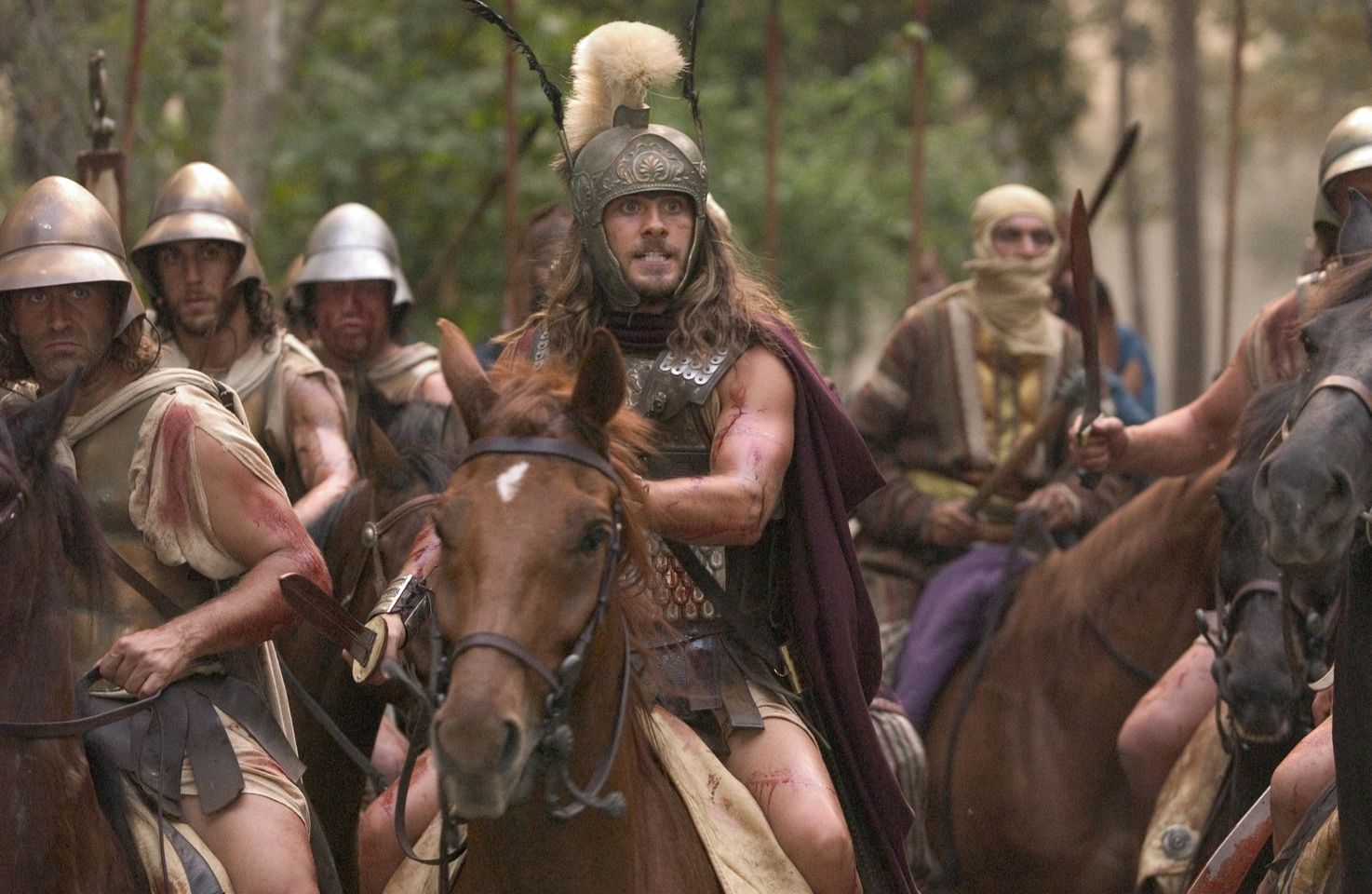Alexander (2004)

Introduction “Alexander,” directed by Oliver Stone and released in 2004, chronicles the life of one of history’s most renowned military leaders, Alexander the Great. With a star-studded cast, including Colin Farrell as Alexander, Angelina Jolie as his mother Olympias, and Val Kilmer as King Philip II, the film aims to provide a comprehensive portrayal of Alexander’s life, conquests, and the complexities of his character.
Plot Overview The film follows Alexander’s journey from a young, ambitious prince in Macedonia to the powerful king who conquered vast territories across Asia and Europe. It delves into his relationships with his parents, his close friend and lover Hephaestion (Jared Leto), and the challenges he faced on his quest for glory. The narrative is framed by Alexander’s final moments as he reflects on his legacy and the cost of his ambition.

Themes
- Ambition and Legacy One of the central themes of “Alexander” is the dual nature of ambition. While Alexander’s desire for greatness drives him to unparalleled heights, it also leads to personal conflicts and ultimately, his downfall. The film raises questions about what it means to leave a legacy and the sacrifices made in pursuit of glory.
- Power and Leadership The film explores different facets of leadership through Alexander’s relationships with his generals, his soldiers, and his family. It examines the responsibilities that come with power and the impact of leadership decisions on those who follow. Alexander’s leadership style, marked by both charisma and ruthlessness, highlights the complexities of ruling and maintaining loyalty.
- Identity and Cultural Interaction “Alexander” portrays the blending of cultures that occurred during Alexander’s conquests. His interactions with various civilizations, from the Persians to the Indians, underscore the significance of cultural exchange and the impact of globalization, even in ancient times. The film presents Alexander as a figure who sought to unite different cultures, though this often resulted in conflict and misunderstanding.
- Personal Struggles Beneath the surface of a mighty conqueror lies a deeply conflicted individual. The film reveals Alexander’s insecurities, his struggles with his identity, and the influence of his mother, Olympias. His relationships are marked by emotional turmoil, reflecting the personal cost of his public persona.












